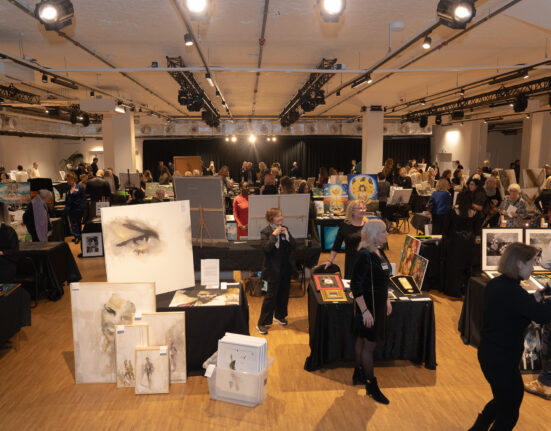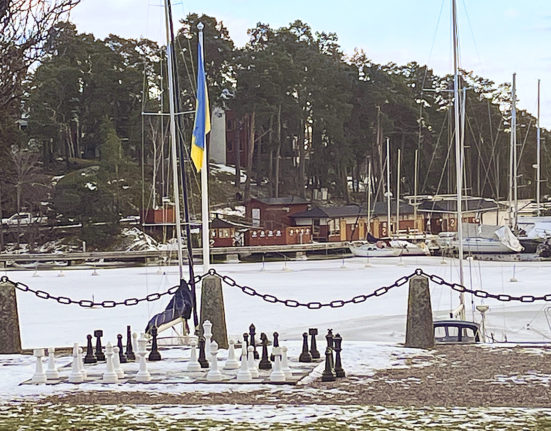Many expats experience a period of loneliness and isolation when they settle in a new country. In this article, Lysanne Sizoo, our mental health expert, looks at three underlying reasons for loneliness and the ways in which we can break out of the isolation.

In this article, I will be describing three kinds of loneliness that incomers to a new country might suffer from. One is more superficial and of a passing nature, the second is linked to the effort of resolving feelings of being disconnected and alien; the third is of a deeper, more psychologically wounding nature. Wherever your particular loneliness fits in right now, it is important to accept that patience and acceptance of the situation ‘as it is now’ is always a great starting point for moving ahead.
No one likes to admit that they are lonely and yet, for most internationals, dealing with the loss of friends and family is always going to be part of the process of adjustment. People that come here to join their Swedish partner are often surprised at their subsequent experience of loneliness compared to those who come here as ‘joint aliens’. When you come here as an international couple, your contact with the native population usually occurs through meeting the neighbours or Swedish work colleagues; many incomers experience that Swedish social networks are tight and sometimes a little hard to penetrate.
My own first experience of the Swedes was the wedding of one my husband’s best friends… everything was very ceremonious and formal. The next week the same group of friends met to celebrate Midsummer’s eve, and… ended up naked and fairly drunk in the sauna. It was certainly a good introduction to two different sides of Sweden!
For those who are part of a Swedish couple, the situation is complex. On the one hand, having a ready-made set of family and friends through your Swedish partner may seem quite handy and Swedes tend to extend the hand of friendship warmly to those who are part of their own in-crowd. But, over time, you might feel that your partners’ friends would not necessarily be the people you would choose to be friends with yourself. And you end up in a bind, because everyone was so terribly welcoming and friendly to start off with and surely beggars ought not to be choosers.
My own first experience of the Swedes was the wedding of one my husband’s best friends. Karlstad’s little cathedral was filled with guests in top hats and tails and everything was very ceremonious and formal. The next week the same group of friends met to celebrate Midsummer’s eve, and the whole party ended up naked and fairly drunk in the little wooden sauna by the water’s edge. It was certainly a good introduction to two different sides of Sweden!
The lonely alien
The first aspect of loneliness that I want to take up is related to the feeling that you don’t (yet) belong. Back home in your country of origin or in the country in which you last lived, you would have created a place for yourself and felt affirmed by the relationships that you had there. There’s nothing like having ‘your’ café, ‘your’ bakery and especially, ‘your’ people to feel that a place is home. So this type of loneliness, which is part and parcel of the adjustment process, is more about being temporarily disconnected. This is a phase that will pass as you gradually make new friends and find a way of weaving your own storyline into that of your new environment. It doesn’t happen overnight, but remember that eventually it will. I remember how I felt when I got my first wave of recognition as I drove out of my house in Sweden; it meant so much as it told me I’d ‘landed’!
‘Them’ and ‘Us’ loneliness
Another form of loneliness or isolation comes from the realisation that there are some unbridgeable gaps between your host culture and your own. I am Dutch and we love a good discussion; setting the world to rights in loud opinionated voices and enjoying the debate, win or lose. Yet I have realised that this kind of dinner table behaviour is really not something that ‘fits’ here. That’s OK; we’re not here to change what has worked fine for the Swedes over many hundreds of years. It’s not so much a judgement on the native culture, but more of a growing realisation that their ‘normal’ and our ‘normal’ is different.
We have a choice in finding the social structures and connections where we can fit in. For some that may be everything Sweden has to offer, for others it may be the international community, or, as the Swedes so wonderfully put it, it may even be ‘både och’ (and/and).
It is seeing the differences clearly that helps us to stop trying so hard to be something we’re not and accepting the difference is what we need to confidently build up our so desperately needed social networks. Emmy van Deurzen is the author of Paradox & Passion in Psychotherapy. She was born in Holland, then worked in France, and is now one of the UK’s leading Existential Psychotherapists. She writes; “It is easy to underestimate the importance of the societal structures that regulate belonging. (…) as a foreigner you are by definition the intruder, who is only accepted as a temporary guest.” We can feel we need to earn our right to be more than a guest here and in that process, we sometimes lose a little of ourselves, and become a little disconnected from who we are.
I would like to suggest that this kind of loneliness is a second stage of the on-going process of adaptation and that, hard though it may be, it can spur us on to realise we have a choice in finding the social structures and connections where we can fit in. For some that may be everything Sweden has to offer, for others it may be the international community, or, as the Swedes so wonderfully put it, it may even be både och (and/and). As van Deurzen suggests “For the melting pot that we now live in will continue to shake our populations and cultures together, and will require of us a new flexibility and an ability to let go of previous securities in belonging to a country or culture.”
Being alone by ‘choice’
The third form of loneliness is one that you may have already experienced earlier in life, but has been experienced more intensely upon your move to another country. Some people get a rough start in life and might ‘choose’ to stay well clear of emotionally intimate relationships. If your primary care givers have been unable to meet you with empathy and compassion, then your trust in other people can be severely dented. After all, if you can’t trust your parents, who can you trust?? Negative comments or reactions suddenly take on the energy of hurt and pain from the past.You might have coped by building up a strong ‘survivor’ personality; telling yourself you don’t ‘need’ other people, while just under the surface is a longing to connect. To the outside world it may look as if you’re isolating yourself on purpose when you refuse to join clubs or invite colleagues round for a coffee; they might feel that you are doing nothing to break out of this isolation . But the fear to be hurt (again) is greater than the fear of abandonment and loneliness. Sadly, this is an increasing phenomenon in modern society; people seldom take the time to really connect with someone who evokes ambiguity around our offers of friendship.
If you recognise yourself in this third example, then it will help to realise that; from the perspective of your defences it makes absolute sense. What will help is to work actively with old fears and learn to take care of your deeper frightened self. In the words of one of my clients, “when you are really lonely and isolated it is so reassuring, liberating and comforting to be able to talk about it without feeling like a total loser and without being patronized, ridiculed or laughed at”. Talking with someone who is a professional listener could be a first step to slowly daring to trust that you might be safe and you might find people to rely on.
Summary
So enjoy your period of adjustment, and know that most feelings of loneliness are of a passing nature. Remember that you are allowed to be different, and if your loneliness is of a deeper more lasting nature, that there are people who will understand and support you through the process of learning to trust again.
* quoted with client’s permission
Books about loneliness:
In a cross cultural context: Cross-Cultural Connections: Stepping Out and Fitting in Around the World
In the context of early wounding/inherited loneliness: www.lonelythebook.com
DISCLAIMER
These articles are a composite of my personal, my colleagues’ and
clients’ experiences in order to protect recognition. All therapeutic
meetings are Turning Point are confidential, and specific content would
never be shared in a public forum.
If you have any specific questions about marriage in a foreign land, or indeed other issues that you would like Lysanne to consider in her articles, please contact her here (anonymity will always be preserved).
Lysanne Sizoo is the founder and director of Turning Point, the only international counselling centre in Stockholm. In 2008 she obtained her psychotherapy license from the United Kingdom Council for Psychotherapy. She has been practising as a counsellor and psychotherapist since 1997, specialising in the field of cross cultural issues, as well as fertility, bereavement, parenting, anxiety and stress management.
Article: Lysanne Sizoo
Photo Credit: Michael Cavén













1 Comment